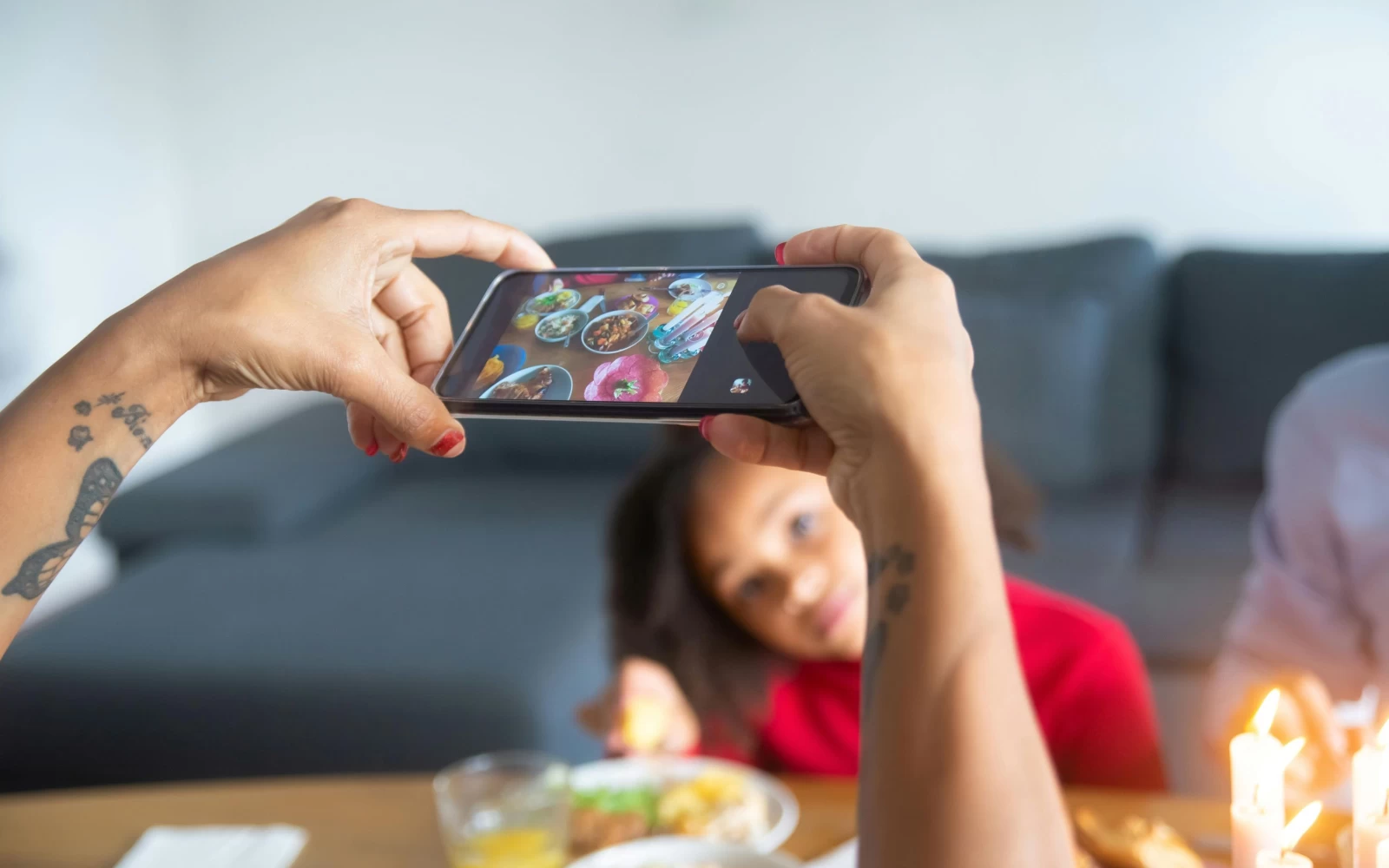Sharenting – an innocent lifestyle choice or a risk to your child’s privacy?
Posted 24th January 2024

It's hard to navigate the social media landscape today without coming across the concept of 'sharenting' - even if you're not familiar with the term. Sharenting refers to the practice of parents sharing images and videos of their kids and sometimes parenting practices, on their social media platforms and is a combination of the words 'sharing' and 'parenting'. It usually involves using images and video content featuring the children in question and offering in an indirect way, suggestions and advice pertaining to lifestyles and parenting techniques.
Dr. Ana Jorge, a professor at Lusófona University in Lisbon, has studied celebrity and influencer culture for the past 14 years in relation to children and families. Talking to us about the modern phenomena of sharenting and the common dislike of ‘unsolicited advice’ from well meaning friends and relatives, she said: “Parents and new parents are often interested in some kind of advice and guidance, but from people they can identify with and that sometimes are not physically around them or not socially close to them; and they often find them on social media.”
The privacy and ethical debate
With research telling us that 70 per cent of parents are posting an image of their child or children at least once a month, it's clearly become the norm. While many parents enjoy sharing moments and milestones of their children's lives with friends and family, many accounts are left open for anyone to browse - a necessity for anyone wanting to progress to the realm of influencer. But unsurprisingly, sharenting has raised concerns regarding the privacy and safety of the children involved. Posting too much information about a child's personal life, including pictures, locations and other details, can expose them to potential risks and the rise of AI presents yet more risks of what can happen if your child's images end up in the wrong hands.
Debates have also arisen about whether children should have a say in what's shared about them online, but the huge influence of celebrities and social media influencers sharing details of their lives has clearly rubbed off on other parents who may not have the reach of celebrities, but who are experiencing some kind of benefit to opening the door to their lives on the likes of Instagram or TikTok and have perhaps not considered the risks of this seemingly innocent habit.

Research supports the influence of high profile 'sharents'
We conducted a survey in 2022/23 and obtained insight from more than 500 parents with one or more children aged 0 to 10 years on a number of parenting issues. One of the things that was highlighted by the research was the influence of certain celebrity parents, most of whom rely on social media to maintain their popularity, including glamorous housekeeping expert Mrs. Hinch and X Factor finalist and Loose Women star Stacey Solomon, whose name was mentioned by a significant majority - nearly a fifth of respondents named her as most inspirational to their own parenting due to her family focused social media presence that has steadily grown over the past ten years.
With an Instagram follower count of 5.4m and 6.3m likes on Tik Tok, Stacey Solomon has proved a hit with mums due to her down to earth attitude, home making tips and doting approach to parenting her four children, aged from one to 14 years old. She is also a step-mum to husband Joe Swash’s son from a previous relationship.
What it takes to be a successful sharenting influencer
Solomon isn’t the only high profile parent making an impression on social media. Dr. Jorge went on to describe what makes certain personalities more popular on social media, in particular as parents: “It requires a lot of competence to make one's brand visible in the social media ecology. Not everyone has the communication skills, the storytelling, the image. There’s a rhetoric that this is possible for everyone; but it isn’t. They have to be compelling and establish relatability, to show themselves as imperfect, learning as they go and making mistakes… they establish closeness with their followers this way.”
To achieve influencer status is to be extremely committed to building a social media following and a recognisable 'brand', but that commitment that can pay off for many, particularly when one in four members of the Gen Z population is serious about becoming a social media influencer. Perhaps finding a way to make every life stage relevant to an audience is the key to making influencing a viable career choice and since the decision to have children is so lifechanging, the decision to include them in your social media outreach strategy seems to make sense, but do the negatives outweigh the benefits?


